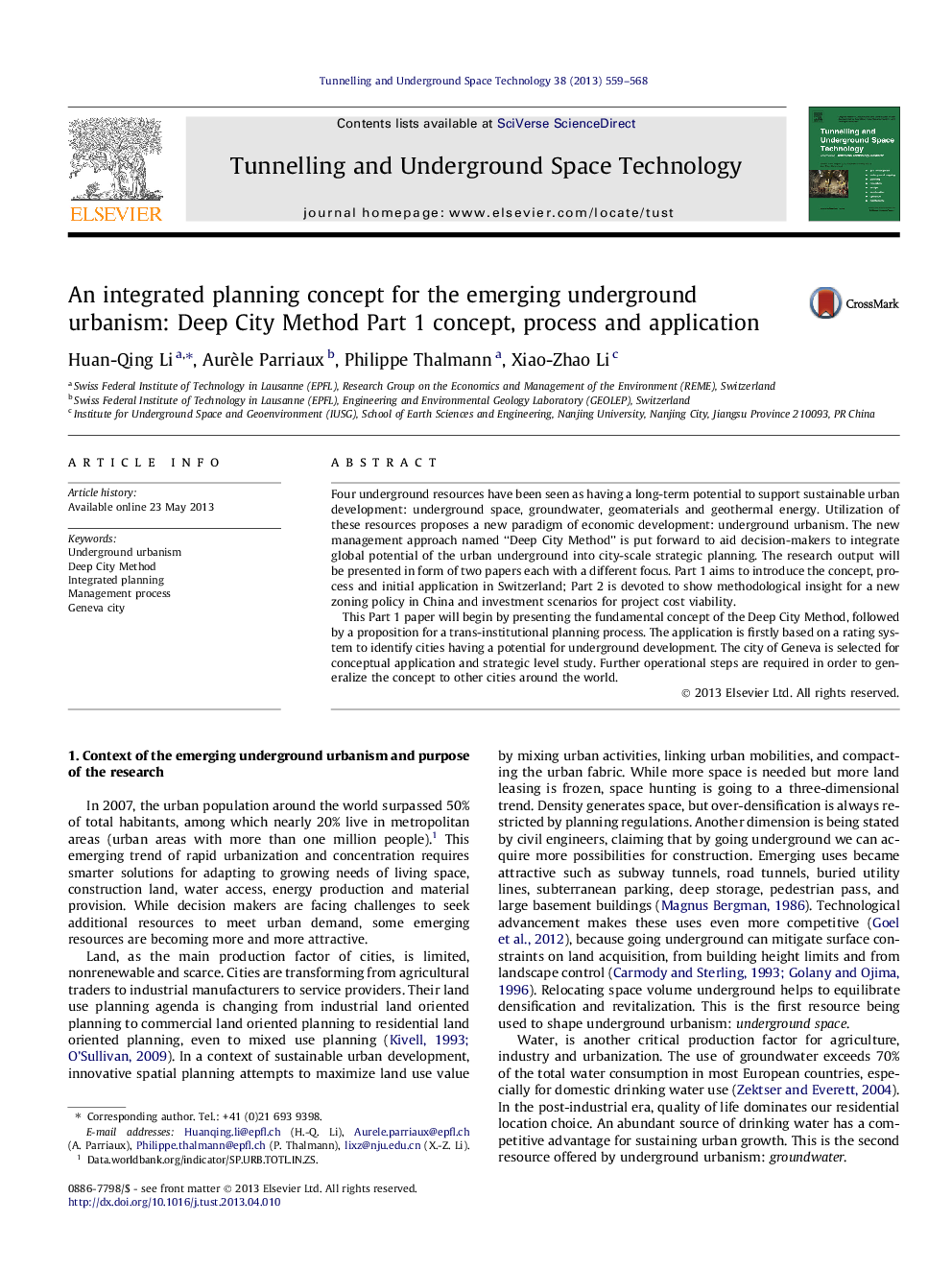| Article ID | Journal | Published Year | Pages | File Type |
|---|---|---|---|---|
| 310684 | Tunnelling and Underground Space Technology | 2013 | 10 Pages |
•Integrated planning process for sustainable undergroundisation.•Macro scale development potential appraisal (Deep City Applicability Scores).•City scale policy formulation for underground urbanism (case study: Geneva city).•Large urban scale potential zoning and development forecast (case study: Suzhou city).•Micro scale economic premium index assessment and building project marketability.
Four underground resources have been seen as having a long-term potential to support sustainable urban development: underground space, groundwater, geomaterials and geothermal energy. Utilization of these resources proposes a new paradigm of economic development: underground urbanism. The new management approach named “Deep City Method” is put forward to aid decision-makers to integrate global potential of the urban underground into city-scale strategic planning. The research output will be presented in form of two papers each with a different focus. Part 1 aims to introduce the concept, process and initial application in Switzerland; Part 2 is devoted to show methodological insight for a new zoning policy in China and investment scenarios for project cost viability.This Part 1 paper will begin by presenting the fundamental concept of the Deep City Method, followed by a proposition for a trans-institutional planning process. The application is firstly based on a rating system to identify cities having a potential for underground development. The city of Geneva is selected for conceptual application and strategic level study. Further operational steps are required in order to generalize the concept to other cities around the world.
